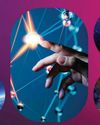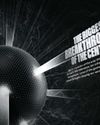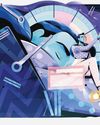
From artificial intelligence algorithms that spot early cancers, to the 'doctor-in-your-pocket' smartphone video consultation, a string of next-generation healthcare technologies are being unveiled at a rapid rate.
For instance, as recently announced in England, users of the NHS app can now collect medications from a pharmacy without having to visit a healthcare centre - the usual paper slip given by doctors being replaced by an in-app barcode.
Such innovations have brought huge benefits to millions of patients. But the advantages of such digitisation are not distributed equally. According to a 2023 Ofcom report, one household in 13 has no access to the internet and a similar proportion has no home computer. Yet even within connected households, the so-called 'digital skills gap' means many people could still struggle.
Imagine this typical case. Dorothy and Bill are retired factory workers in their mid-70s. They have a home computer that plugs into the TV, a machine that can (just about) send emails to their daughter who lives abroad.
It's clunky to use, but they love to see news of the family coming through on the TV screen. Websites take a long time to load, however, so they don't use the computer for much else. Bill has a smartphone and receives photos of the grandchildren on an instant messenger app, but he hasn't worked out how to send any back.
This story is from the March 2024 edition of BBC Science Focus.
Start your 7-day Magzter GOLD free trial to access thousands of curated premium stories, and 9,000+ magazines and newspapers.
Already a subscriber ? Sign In
This story is from the March 2024 edition of BBC Science Focus.
Start your 7-day Magzter GOLD free trial to access thousands of curated premium stories, and 9,000+ magazines and newspapers.
Already a subscriber? Sign In

THE WORST IDEAS OF THE 21ST CENTURY
NOT ALL IDEAS CAN BE HITS. ALONGSIDE GROUND-BREAKING INNOVATIONS, 21ST-CENTURY SCIENTISTS HAVE HELMED THEIR SHARE OF WILD TECH FLOPS, DUBIOUS THEORIES AND OVERHYPED BREAKTHROUGHS. HERE ARE THE BIGGEST TO FORGET

10 IDEAS THAT WILL SHAPE YOUR NEXT 25 YEARS
Predicting the future is considered a fool's game. But it's one many of us like to play.

THE BIGGEST BREAKTHROUGHS OF THE CENTURY
We're a quarter of the way into the new century. To mark this milestone, we asked the UK's top minds to highlight some of the game-changing scientific breakthroughs shaping our world since the year 2000

DO THE SCIENCE COGNITIVE SHUFFLE
Trouble sleeping? A lot on your mind? Use this trick and sedate your synapses

WHAT DETERMINES HOW MANY ABS I CAN GET?
Assuming you're a human being, you have exactly the same number of abs as everybody else: two.

HOW CAN I IDENTIFY MY PSYCHOLOGICAL BLIND SPOT?
In the 1950s two American psychologists, Joseph Luft and Harrington Ingham, proposed a way of thinking about psychological blind spots - things you don't know about yourself - that they called the 'Johari Window' (the term is a combination of their first names).

How can I change my personality?
Want to become more confident, extroverted or assertive? Science shows that with a few simple changes, you can unlock your best self

Could your cosmetics be harming your health?
Cosmetic companies are phasing out microplastics and so-called 'forever chemicals' to help protect consumers.

extraterrestrial US Congress is talking about activity again. Is the truth really out there?
Despite several testimonies, the question remains frustratingly unanswered

Map of 100 million human body cells revealed
Over three dozen new studies mark significant milestone towards complete Human Cell Atlas